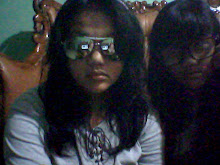Home
»Unlabelled
» PDF The Cold War A World History Odd Arne Westad Books
By
Sisca R. Bakara on Saturday, June 8, 2019
PDF The Cold War A World History Odd Arne Westad Books
![]()

Product details - Paperback 720 pages
- Publisher Basic Books; Reprint edition (October 15, 2019)
- Language English
- ISBN-10 154167409X
|

The Cold War A World History Odd Arne Westad Books Reviews
- This is an ambitious but somewhat disappointing book. Odd Arne Westad is the author of an outstanding book, The Global Cold War, on the Cold War, as well as other work on this important topic. This book is a very ambitious attempt to produce a one volume overview of the Cold War and contains a good deal of fine narrative and analysis but suffers from some structural defects. It is neither a survey nor an introductory book. The structure is a series of loosely chronological chapters on important aspects of the Cold War. If you're not familiar with the overall narrative history, either from prior reading or (as with many individuals of my generation) by living through many of the events, a good deal of the discussion will be opaque. In addition, Westad makes no effort to fractionate different phases of the Cold War, which seems possible, and some kind of periodization would be useful in trying to understand the different aspects of the Cold War.
Westad does have an overall theme, which is the Cold War as an ideological conflict between global capitalism and a form of socialism that emerged from late 19th century industrialization. Many of the individual chapters are quite good. A strength of the book, reflecting his prior scholarship on the Cold War in the developing world, is the truly global perspective. While the critical American-Soviet relationship runs throughout the book, there are excellent chapters on other aspects of the Cold War such as the role of India, thoughtful analyses of the behavior of Mao's China, decolonialization, the behavior of the US in South America, and the often complex politics within Europe, both in Western Europe and Soviet dominated Eastern Europe. He is also very good on important aspects of the Soviet-American rivalry, including an even-handed assessment of Nixon's policies and highlighting the importance of Leonid Brezhnev. His description of the end of the Cold War and brief but cogent analysis of its consequences is good and highly relevant to our present situation.
Perhaps because of the broad canvas, I found some sections superficial. This includes, somewhat surprisingly, sections dealing with the background of the Cold War. The description of early 20th century socialism is a bit of a caricature and actually misleading. I don't think he sufficiently stresses that the American leadership of the 1940s and 1950s was bent on avoiding the errors of disengagement that followed WWI. I suspect that the sections on Korea and our early involvement in Southeast Asia don't give enough attention to economic factors, particularly our perception that these regions would be important for the Japanese economy. Again, not surprising in a book this ambitious, there are some factual errors. Its not correct, for example, that the British Mandate in Palestine was a negative for the emerging Zionist state, or that we achieved intelligence superiority over the Soviets in the 1960s. In the latter case, the Soviets benefited enormously from the fact that much valuable information about the US was in the public domain. His description of the outbreak of the Six Day - June War is superficial. He also doesn't discuss one of the most ironic features of the end of the Cold War. The collapse of Marxism resulted in a neoliberal world economic system that goes a long way towards restoring Marx's reputation as an analyst of capitalism.
Finally, there are significant production defects. The bibliography is scanty, there are no maps, and a modest amount of numerical data, such as economic outputs, in tabular or chart form, would have enhanced the discussions. - I enjoyed reading the book and its conclusion about the post Cold War errors in U.S. policy due to the distorting Cold War lens is original and worth debating. On the whole, the ideological position is perhaps too critical of the role of the U.S. in the Cold War, and it reminds me a bit of the theory of equivalency my middle school and Lyceum teachers were so proud to present “Communism and Capitalism are two ideology equivalent in their overall average between the Good and the Evil delivered to the citizenâ€. The author seem to forget the order of magnitude difference between the number of human lives cut short by the catastrophic Marxist Leninist ideology in the Soviet Union, China, Cambodia, Eastern Europe, Vietnam and Cuba and the evil perpetrated by the “anti-communistâ€. Another interesting omission is any discussion of the historically curious and potentially fatal Chinese repudiation of the communist party even more than 20 years of joining the list of capitalist economies.
Overall, I do recommend this wonderful book, both as a reasonable detailed account of the Cold War and an essential springboard for those who wish to start a study in depth of the second half of the twentieth century. - I was disappointed. In my opinion, the organization is poor and the writing very ordinary. Nor was there anything very new here, especially for anyone who read the newspapers during the last half of the 20th century. Coverage is superficial and focuses mostly on the evils of the US.
- This is a definitive history of the period we call the Cold War. Westall sets the background of countries, events and key political personalities up in a way which explains how the tensions between the old Soviet Union and the US and Europe evolved and affected separate parts of the world. I highly recommend this for any one who wants to improve their knowledge about this 50+ period of world history.
- This book describes in some detail the period from 1945 to the fall of Soviet regime. The international struggle between the first and second world.
- Remarkable analysis of Post WWII history. Points in the direction that we are moving into a new into a new era.
- Mr. Westad does an outstanding job of showing both the global reach of The Cold War. How essentially what started out as a bipolar conflict between the US and USSR over control and domination of Europe spread to Asia, Latin America and Africa. He also shows its limitation while both the US and USSR saw everything in that prism. In most parts of the world that global conflict took a back seat to the end of colonization, the vast gaps between rich and poor in many parts of the world. The result was that both US and Soviet policy makers made decisions that severely negatively impacted those countries that became battlegrounds between the two competing ideologies. Some may not care for the layout of this book how Mr. Westad goes from country to country or region to region. It is not specifically a chronological order of The Cold War, though it does have that component. I found it interesting to see the Global reach of the Cold war and its limitations .
- In what concearns Latino America, its a beacon that puts light in how we came to be what we are. Great book



